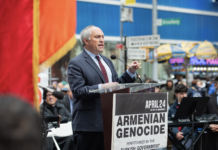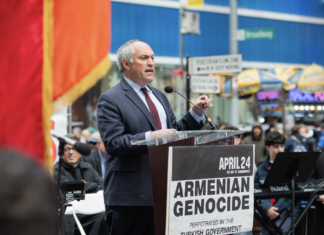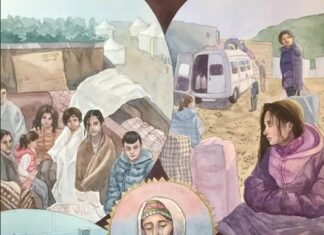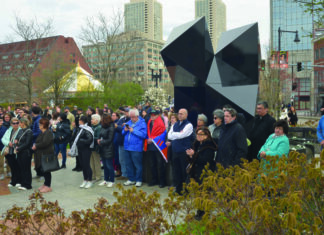By Alin K. Gregorian
Mirror-Spectator Staff
BOSTON — On Sunday, April 24, hundreds of members of the local Armenian community gathered at the Armenian Heritage Park to pay tribute to the victims of the Armenian Genocide and demand justice at a program organized by the Massachusetts Armenian Genocide Commemoration Committee.
Under clear skies, speaker after speaker recited history, combining optimism about the community’s strength with concern about the situation in Artsakh (Nagorno Karabagh) as well as the plight of forced immigrants around the world. Many speakers referred to the symbolic location of the park, in a city that had so many ties to the early promoters of democracy in the US as well as people who helped Armenians during their darkest times.









